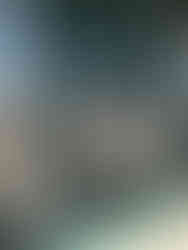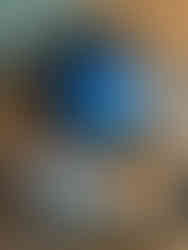An extra day of Art
- frida@artyardbklyn.org

- Nov 25, 2022
- 7 min read
In this week’s ART YARD Advanced Studio on zoom, Teaching Artist Quentin Williamson offered the second of two lessons inspired by Italo Calvino’s novel Invisible Cities and Karina Puente’s artistic interpretations of the cities in the novel. In Calvino’s novel, the explorer Marco Polo tells the emperor Kublai Khan about fabulous cities—which actually represent people. The core of this week’s lesson was the same as that of the first—represent a person as a city—but Quentin added complexity by asking participants to use different media and to choose a city/person that was the “opposite” of the first lesson’s.

Ajani observed that all of these pieces had a lot of depth and gave her the feeling that she could keep exploring more and more layers—the way she explores all the “crevices” of a real city.
Abby’s multimedia collage represents places she has been with her boyfriend in Paris and Spain. Abby used pieces of an itinerary to make a Metro-like path, and used photomontage to depict runners moving from a city street to a rural road, causing multiple levels of her travels to fold in on one another.

Ajani’s more abstract watercolor represents her friend as a city, more as a state of mind than a physical place. The city, like Ajani’s friend, runs on plant energy, and her palette of mostly warm colors, with a little bit of a cool grey, represents her friend’s personality.

Karla’s piece represents her son and the complexity of the information he has to work with in his job—lots of grids. Ed complimented Karla’s layout and the skill with which she arranged so many pieces into an effective composition.

Meridith’s watercolor evokes her nephew and his first encounter of the Italian town of Sperlonga during a trip that the two of them took together. Meridith’s nephew said, upon seeing Sperlonga for the first time, that the place “is perfect.” Meridith chose a lower vantage point looking up, from the pirates’ lookout that is near Sperlonga.

Quentin’s piece, made with watercolor pencils, represents his grandmother and her long, complex stories. Ed observed that Quentin makes his city into a continuum that invites the viewer to move through the space, while some of the other pieces from this week (for example, Ajani’s and Pat’s) are more symbolic and iconographic, where the viewer knows what the image represents.

Pat’s piece represents her association of model railroads with being “at home”—her father has always had a model railroad layout in his basement, and this past weekend Pat went to an open house at a model railroad museum in her neighborhood, just two and a half blocks away from her place. Following Quentin’s suggestion to represent a city that was somehow the “opposite” of one’s city from the first Invisible Cities lesson, and to use media, Pat chose the theme of “staying at home” in contrast to “travelling abroad” (for which she had represented a fanciful, brightly-colored Florence), and she chose to use a regular Sharpie, in contrast to her usual finer-tipped pens.

Ed represented his beloved teacher, the late Siah Armajani, through a portrait amidst Armajani’s architecturally-informed art installations in New York and Minneapolis. Ed continued a practice from Armajani’s life of drawing a particular bridge every day. Other participants appreciated this introduction to Armajani’s work.

On Tuesday for ART YARD Advanced Studio in person at BWAC we were scheduled to begin the first of a four-week cycle of book making with Teaching Artist Golnar Adili creating Flag Books.

In a series of misadventures, emergencies, feeling poorly, cases of covid, and scheduling snafus Golnar, Assia and I were the only artists who made it to Red Hook. Thus our trio went off to the BBQ place nearby for a meeting with libations, snacks, and spelling practice.
I tasked Assia with looking for the word RIB the big menu board. This lead to a fascinating muli-level, multi-lingual and rather conceptual conversation about ribs, which direction to read when some of your languages go left to right and other right to left. I learned that in Farsi the word for ribs, ghafaseye sineh, means “the cage of the chest/heart”. Isn’t that a lovely way to say it? The 20 foot tall skeleton outside the restaurant was the perfect illustration for that iteration of the word.

Today we had special extra ART YARD Session at our studio at BWAC. Alicia Degener, BWAC co-president, asked if we might help make the space festive for the holidays and the upcoming exhibition and art sale. To accomplish this in an ART YARD kind of a way, we set about painting large-sized winter trees inspired by the work of Ed Rath.

The spacious studio at BWAC allowed us to spread out and create over 30 pieces in one afternoon! We painted our winter trees in black and white on huge sheets of brown paper.
Our trees will be displayed throughout the first floor galleries at BWAC for the winter exhibition and affordable holiday art market on view December 3-18, 2022!
Spreading out over thirty large-scale paintings for critique was quite impressive! We noticed that as a group they hold together and call to mind Ed's work, while at the same time the individual artists are quite apparent. Jane turned to me and said: "These paintings could be an exhibition all on their own. A veritable forest of a display."

Managing Director Dennis Buonagura reports: “I met with the outstanding art teacher, Cassandre Midouin, at the East New York Arts and Civics High School this week - in preparation for the start of classes under our partnership. We discussed possible lesson plans, supplies, storage, photo releases, and time schedules - and a lot more.
When I arrived, Cassandre was working one-on-one with a 9th grader - discussing perspective. It was great to witness such a patient and caring teacher.
I'm looking forward to our partnership.
We entered into deep conversation and I totally forgot to take pictures. However, just a few blocks from the school, on the Van Siclen station (on the 2 and 3 lines), there's some great MTA above ground transit art by Saya Woolfalk - painted stainless steel called Urban Garden Rail. Sun was shining brightly so I tried every which way to get photos without my shadow, hence the angle shots.”
Other Art News
I completed a recent commissioned painting of Rachel Rath's beloved feline Lil Mama. I think of it as a Kitty Boudoir Portrait!

On a recent trip to Canada, Ajani went to see Karine Giboulo: Housewarming at the At the Gardiner Museum in Toronto.

From the press release: "Housewarming is Giboulo’s response to the COVID-19 pandemic that began in 2020, and the waves of confinement and isolation that followed. It is a sculpted documentary of individual and collective experiences grounded in current events. With the pandemic as a constant presence, the colourful dioramas furnishing each room prompt reflection about the challenges we face as a society. Their stories amplify themes pertaining to connectedness and isolation, aging and care, labour and consumerism, the climate crisis, food insecurity, and housing instability. This intimate journey also unveils a personal narrative of self-acceptance and identity and transports us to the world of childhood, a critical period in the development of consciousness about the world."
Photos from the exhibition by Ajani Russell
Ajani explains: “The exhibition was an immersive window into a surreal world shaped by the artists climate change dread. There was so much emotion in every figure, which was also reflected the common household spaces and objects they were housed in. She addressed the difficulty of working within the confines of one’s living space house by transforming her home into art itself.”
A couple of weeks ago when we visited the Wall Gallery, director Scott Pfaffman invited ART YARD Artist Vera Tineo to write a review of the Martin Colden exhibition. Here is Vera’s review:
Martin Colden’s Gestural Dance of Paint at the Wall Gallery
By Verá (Vee) Tineo
I was invited to the Wall Gallery (41 Seabring Street, Red Hook, Brooklyn) with a warm welcome from co-founders Franz Landspersky and Scott Pfaffman. Both professional artists, Pfaffman and Landspersky have designed their quirky gem of a gallery space from an artist’s point of view. Walking down the entry ramp into this converted half-basement space one is surprised by what is a spacious and well-lit gallery. The layout encourages contemplation and comparison of the artwork. All in all one feels like the long journey to Red Hook (several trains and a bus for me!) has paid off.

Currently installed at the Wall Gallery are immense abstract gestural drawings by German artist Martin Colden. Pinned directly to the wall these pieces invite us to activate our imagination and wonder as we scan the sweeping marks with curiosity trying to discern the actions of the artist at work making them.
Upon careful observation one notes that the large paper and upcycled billboard sheets are creased evenly, indicating that they have been folded. My curiosity was sparked! Seeing my interest director Scott Pfaffman told me about the two small carrier boxes that held these enchanting drawings on their route from Germany to Red Hook, Brooklyn. Folding the work not only allows for safe travel, it is also a crucial compositional element to Colden’s paintings, working as a guide for the artist as he works. In addition, each small rectangular shape can be seen as its own composition within the larger piece.
In the work on display there is an evident mastery and intriguing use of material including ink, paint, paper and repurposed billboards ads. I am particularly drawn to the fact that Colden collects billboard ads to use as a base for his paintings. This provides us with a bit of a scavenger-like experience looking for the text -- guessing at the content of the ad and wondering how it might factor into the artwork. Language is not only literally repeated through found advertising words, but also with letter-like calligraphic marks and spherical shapes. In both the larger and more intimately scaled work Colden’s stroke is created with dexterity, his handling of ink and paint is animated, adept and fluid, seemingly getting it “just right” again and again. Perhaps this is more than drawing, and a bit of a dance? There is a sense of choreography in Colden’s approach which can be seen and felt, the drawings exist as evidence of that dance.
Colden’s gestural mark-making activates the whole canvas forcing the eye to dart and swirl as one contemplates the work. The language and text elements encourage us to read the work as one might a poem. There is a new layer to this dance with these human-scaled works as we the audience join in. Martin Colden’s work has a charm that can only truly be experienced in person at the Wall Gallery now through December 7 by calling 718-781-8263 to make an appointment. I encourage you to go and experience these masterful works yourself.

💙

































































Comments